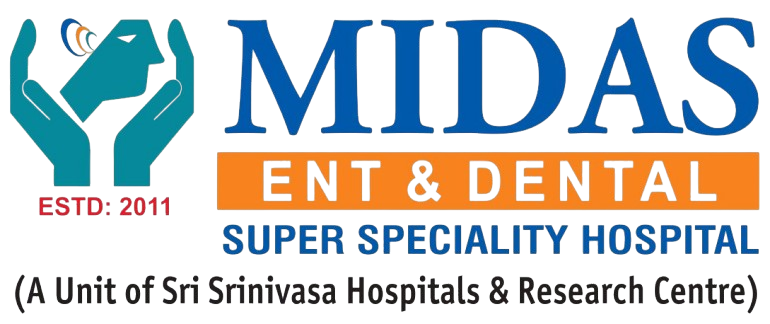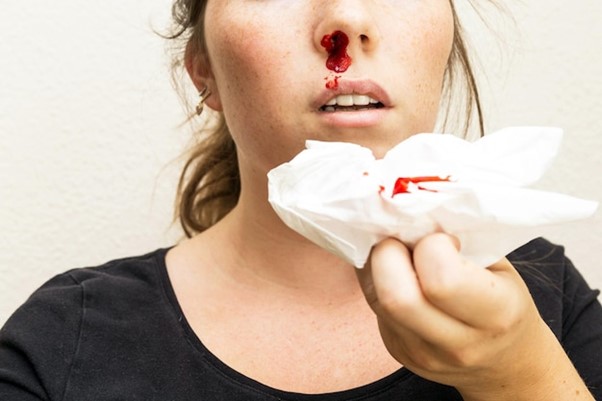Nosebleeds, or epistaxis, are a common health concern that can affect people of any age group. Although they are often not serious, they can be alarming, especially when they occur unexpectedly. Epistaxis refers to the bleeding from the inside of the nose, which can range from a small, minor bleed to more significant bleeding. In this blog, we’ll explore the causes of nosebleeds, what to do when they happen, how to prevent them, and when to seek medical help. By the end, you’ll be equipped with the knowledge to handle this condition and keep your nose healthy.
What is Epistaxis?
Epistaxis is another name for a nosebleed, caused by the rupture of blood vessels in the nasal cavity. inside the nose become damaged, causing bleeding. Nosebleeds can happen spontaneously or as a result of an injury or other conditions that affect the blood vessels. The nose contains many tiny blood vessels, particularly in the area known as the Kiesselbach’s plexus. This area is particularly vulnerable to bleeding because the vessels are close to the surface and can be easily irritated or injured.
Causes of Nosebleeds
Nosebleeds can be triggered by a variety of factors. Some common causes include:
- Dry Air: Primary cause of nosebleeds is dry air. In colder months, or in air-conditioned rooms, the mucous membranes inside the nose can dry out, leading to cracks or irritation that result in bleeding.
- Nasal Injury: Physical trauma, such as picking your nose or an accidental bump to the nose, can damage the blood vessels and triggering a nosebleed.
- Allergies: Allergic reactions can inflame the inside of the nose, making the blood vessels more fragile and prone to bleeding.
- Sinus Infections: Sinus infections can trigger inflammation in the nose, heightening the possibility of a nosebleed.
- Medications: Certain medications, like blood thinners or nasal sprays, can increase the risk of nosebleeds. Nasal decongestant sprays, if used too frequently, can dry out the nasal lining and lead to bleeding.
- Structural Issues: Deformities such as a deviated septum or the presence of nasal polyps can disrupt airflow and blood circulation in the nose, leading to frequent nosebleeds.
- Environmental Factors: Exposure to smoke, chemicals, or strong odours can irritate the nasal passages, increasing the chances of a nosebleed.
- Underlying Medical Conditions: Certain medical conditions like bleeding disorders, high blood pressure, or clotting problems can make a person more susceptible to nosebleeds.
Types of Nosebleeds
Nosebleeds are classified into two categories based on their location:
- Anterior Nosebleeds: These are the most common type of nosebleeds. They occur when blood vessels in the front part of the nose break. Anterior nosebleeds are typically less severe and can be easily managed at home.
- Posterior Nosebleeds: These are less common but tend to be more serious. Posterior nosebleeds occur when blood vessels at the back of the nose rupture. This type of nosebleed may require medical attention as it can lead to more substantial bleeding.
Symptoms of a Nosebleed
The most obvious symptom of epistaxis is, of course, visible bleeding from the nose. Other symptoms may include:
- A sensation of blood dripping down the back of the throat
- A feeling of stuffiness or congestion in the nose
- Swallowing or coughing up blood
How to Manage a Nosebleed
While nosebleeds can be unsettling, they are usually not dangerous and can be treated at home. Here’s what you should do if you or someone else experiences a nosebleed:
- Stay Calm: The first step is to remain calm. Nosebleeds, while often alarming, are usually not a cause for concern.
- Sit Up and Lean Forward: Keep your head above your heart and lean slightly forward. This helps prevent the blood from flowing down the back of your throat, which could lead to nausea or choking.
- Pinch Your Nostrils: Apply pressure to your nostrils by pinching them with your thumb and fore finger together tightly. Hold the pressure for about 5-10 minutes without releasing. This pressure helps stop the bleeding.
- Breathe Through Your Mouth: As you pinch your nostrils, keep breathing through your mouth to make sure you don’t feel short of breath.
- Apply a Cold Compress:You can also place a cold compress on the back of your neck or the nose. The cold helps constrict the blood vessels, slowing down the blood flow and reducing bleeding
- Avoid Straining: After the bleeding stops, avoid any strenuous activity, such as heavy lifting or blowing your nose, for at least 24 hours. This can prevent the bleeding from starting again.
- Use Humidifiers: If dry air is the culprit, using a humidifier in your home can add moisture to the air and minimize the chances of more nosebleeds
When to Seek Medical Attention
While most nosebleeds are not serious, there are certain situations where you should seek medical help:
- If the Bleeding Does Not Stop: If the bleeding lasts for more than 20- 25 minutes despite applying pressure, you should seek medical attention immediately.
- Frequent Nosebleeds: If you or your child experiences frequent or recurrent nosebleeds, it could be a sign of an underlying issue that requires medical evaluation.
- Excessive Bleeding: If the bleeding is heavy and you are losing a lot of blood, get to an emergency room or urgent care centre right away.
- Signs of Infection: If the nosebleed is accompanied by signs of infection, such as fever or a greenish discharge, it could be due to a sinus infection or other underlying condition.
- Underlying Health Conditions: If you have a history of bleeding disorders, or are on medication that affects blood clotting, it is important to consult with a healthcare provider as nosebleeds may be more severe or harder to stop.
Prevention of Nosebleeds
While some nosebleeds are unavoidable, there are several steps you can take to reduce the likelihood of future episodes:
- Moisturize Your Nasal Passages: If you live in a dry climate, or if the air inside your home is dry, use a saline nasal spray or a humidifier to keep your nasal passages moist.
- Avoid Picking Your Nose: Picking your nose or blowing your nose forcefully can injure the blood vessels inside your nose and trigger a bleed.
- Use Allergy Medications: If allergies are a trigger, make sure to use prescribed medications such as antihistamines or nasal sprays as directed by your healthcare provider.
- Treat Sinus Infections Promptly: If you suspect you have a sinus infection, seek medical treatment early to prevent complications that can lead to nosebleeds.
- Protect Your Nose: If you’re involved in contact sports or activities that may result in facial injuries, consider wearing protective gear to avoid trauma to the nose.
- Stay Hydrated: Drinking plenty of water throughout the day can help keep the mucous membranes in your nose hydrated, reducing the chances of irritation.
Epistaxis, or nosebleeds, are a common condition that most people experience at some point in their lives. Although they can be unsettling, most nosebleeds are harmless and can be treated at home with simple measures. Knowing what causes nosebleeds, how to stop them, and when to seek professional care can help you manage the situation effectively.
If you or a loved one experiences frequent nosebleeds or if you have concerns about the underlying causes, it’s important to consult with an expert. At Midas ENT & Dental Super Specialty, our team of professionals is here to help you with all your ENT and dental health needs. From diagnosing and treating conditions that cause nosebleeds to offering preventive care and management, we are committed to providing you with the highest level of care. Don’t Let Nosebleeds Disrupt Your Life – Visit Midas ENT & Dental Super Specialty Today for Expert Care and Treatment.


